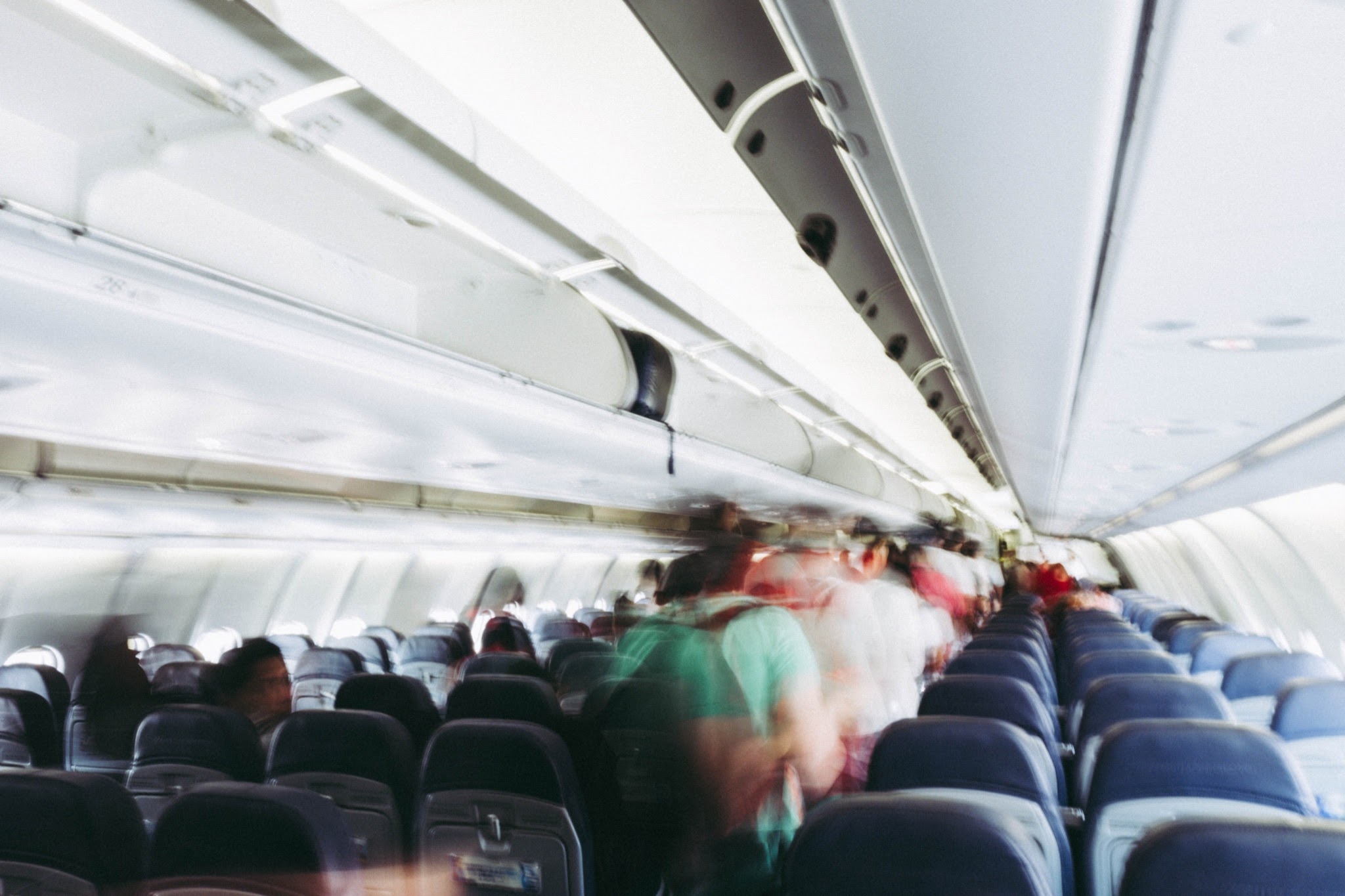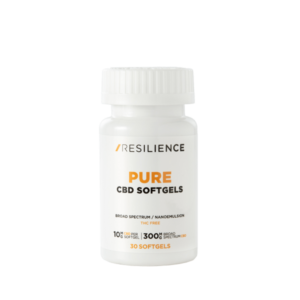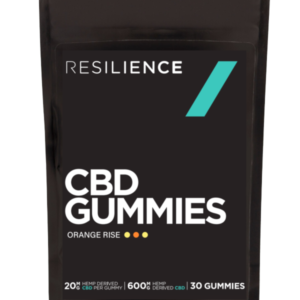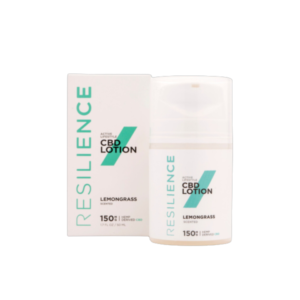
The benefits of CBD range far and wide, touching on just about every internal process or function: immune system, mood, appetite, nervous system, and even sleep. So how can something that helps regulate sleep (among plenty of other things) also help with the exact opposite?
There’s no quick and easy explanation because CBD, and the bodily systems it affects, does not work in a clear-cut, linear fashion. But the short answer is this: CBD can help you feel rejuvenated and energized.
But how, exactly? We’ll cover everything you may want to know in due time. Just keep reading.
Key takeaways:
- Despite common rumors and criticisms, CBD is not a sedative and, at most normal doses, will not induce drowsiness or sleep.
- CBD interacts with the endocannabinoid system, which holds an important role in energy homeostasis and the regulation of the sleep-wake cycle, both of which can contribute to improved energy.
- CBD products can also help regulate sleep duration and quality, which naturally elevates daytime energy levels.
Common Misconceptions About CBD and Energy Levels
A lot of people incorrectly assume CBD is a sedative that will leave you feeling drowsy (and, as serious CBD cynics might say, “lazy,” “zombie-like,” and “catatonic”). First off, forget the haters. They don’t know what they’re talking about, and they need to take their negativity elsewhere.
The simple truth is that CBD does nothing of the sort.
Yes, it can help you feel relaxed, stress-free, and at ease with the world. But not at the expense of your executive functioning. In fact, CBD has even been shown to improve working and spatial memory, and many use it as a daily concentration-enhancer.
Those CBD-haters are more than likely conflating CBD with its Cannabis-derived counterpart, THC (Tetrahydrocannabinol). THC is the primary active ingredient in marijuana, which is known for its potency and many people equate with lethargy and low motivation. Just because THC and CBD come from the same cannabis plant doesn’t mean they have the same properties.
Now that we’ve covered what CBD isn’t, let’s dive into what it is—and how that relates to increased energy levels.
CBD and the Endocannabinoid System
The endocannabinoid system (ECS) is a complex network of cell signals and receptors responsible for maintaining homeostasis, or internal balance, across several important processes in the brain, immune system, and endocrine system (our glands and the hormones they produce).
For this reason, the ECS is sometimes referred to as a “master regulator.”
This begins to explain why CBD—a cannabinoid that interacts with the ECS—can simultaneously influence so many different (and almost contradictory) bodily systems, like sleep and wakefulness. The endocannabinoid system has its finger in virtually every pie.
Let’s break it down a little. There are two central components involved in the ECS:
- Endocannabinoids – Endogenous cannabinoids (or endocannabinoids, for short) are molecules formed within the body. These act as messenger molecules to maintain internal order and balance, produced by the body as needed.
- Endocannabinoid receptors – These cannabinoid receptors are what the endocannabinoids bind to in order to transmit their message—like a receiver picking up a cell signal. The process of binding is what initiates specific bodily functions.
There are two types of endocannabinoid receptors: CB1, mainly in the central nervous system, including the brain and spinal cord, and CB2, found in large part in the peripheral nervous system, encompassing the rest of the body.
If the endocannabinoids bind to the CB1 receptors, they might send signals to mitigate physical discomfort, for example. On the other hand, if they bind to the CB2 receptors, they might trigger your immune cells to reduce swelling in a certain area.
So how does CBD play into all this?
CBD—short for cannabidiol—is an exogenous cannabinoid (or exocannabinoid), meaning it’s produced outside of the body. It doesn’t quite bind to the CB1 and CB2 receptors in the same way, but it does influence the ECS, and therefore regulates many of the same physiological processes, like memory, sleep, appetite, and energy.
The endocannabinoid system impacts our daily energy levels in two key ways.
#1 The Endocannabinoid System and Energy Homeostasis
If the endocannabinoid system’s role could be boiled down to one word, it would be homeostasis. All day long, the ECS is trying to keep our bodies in perfect balance as it bounces between one extreme and another like two kids on a teeter-totter.
Endocannabinoids, and specifically CB1 receptors, are already known to play a role in energy homeostasis, the balance between energy expenditure and energy intake.
Let’s put the scientific terminology aside for a moment and talk about what this experience is like for us in real-time. Energy expenditure is our body burning calories, either at rest or through exercise. Energy intake is eating and drinking, supplying our body with the calories we need to make it through the day.
As humans, we’re constantly moving between being hungry and full, and being tired and energized. When we eat, our bodies have the energy they need to sustain us. When we aren’t properly nourished, we have no fuel to keep us going.
Energy homeostasis, then, is the balance between these two opposing states.
Here’s how endocannabinoids regulate metabolism to improve energy:
- They increase our energy intake, giving us a boost of vitality.
- They promote energy storage so that our body has more fuel to use later on.
- They decrease energy expenditure, meaning our body isn’t working nearly as hard to maintain the same regular functions.
When we have energy to spare, we’re bound to feel more lively and spirited. And as we’ve just discussed, CBD works in very similar ways to endocannabinoids—that’s how CBD can work to maintain balanced levels and even give a little daily energy boost.
#2 The Endocannabinoid System and Wakefulness
The ECS plays a role in properly regulating our sleep-wake cycle, our body’s natural rhythm of feeling sleepy at night, and awake come morning.
The concentration of one endocannabinoid in particular, anandamide, seems to appear in a rhythmic fashion, much like our sleep-wake cycle. There’s about three times more anandamide in our system when we wake up—when we’re filled with a renewed sense of energy—than there is right before we go to sleep—when we’re exhausted from the events of the day.
A few promising studies have shown increased wakefulness and alertness when examining CBD’s effects, specifically towards the wake-promoting parts of the brain.
Again, CBD isn’t identical to anandamide, or any endocannabinoid for that matter, but they certainly share similar properties. In the same way that ECS stimulates our wakefulness, and therefore energy levels, so can CBD.7
With Better Sleep Comes More Energy
The other piece of the puzzle is much simpler than all this talk about endocannabinoids, receptors, homeostasis, and the like.
Better nighttime sleep equals better daytime energy levels.
We all know this from firsthand experience. A night of tossing and turning (or skipping sleep altogether to cram for an exam or work deadline) is almost inevitably followed by days of poor mental clarity, lack of motivation, and of course, low energy levels.
CBD can’t save you from your upcoming biology test, but it can help with the restless sleep you might be getting. It’s a popular sleep aid for a couple of key reasons:
- CBD can be an effective relaxation agent, which can help eliminate some of the most significant barriers to quality sleep. Replace tossing and turning with resting and recharging.
- CBD can, once again, help regulate the sleep-wake cycle. With healthy, complete sleep cycles, we’re able to get better, more restorative nighttime sleep.
By promoting good sleep, CBD can increase energy levels, too.
Other Natural Energy-Boosting Methods
If you’re tired of being tired and looking to make a meaningful change, CBD isn’t the only step you can take. In fact, there are tons of natural ways to boost your alertness and wakefulness alongside a daily dose of CBD oil tincture for energy:
- Get up and move – When you’re tired, this is probably the last thing you want to do. Unfortunately, it’s also one of the most beneficial. This could involve a full-on workout, but it could also be as simple as a 10-minute walk around the neighborhood, a few minutes of stretching, or a quick burst of high-intensity cardio to shake off the brain fog.
- Fuel yourself with healthy foods – To maintain a consistent level of energy, you’ll want to avoid sugary, processed foods that give you a short burst of energy followed by a much longer crash. Instead, fill your plate with healthy proteins and fats on a regular eating schedule.
- Hydrate, hydrate, hydrate – There’s a reason water is cited as a solution to most everyday ailments—because your body needs it more than anything else. Dehydration can quickly lead to fatigue, so don’t forget to refill your water bottle regularly!
- Caffeine (but not too much!) –Caffeine is one of the popular dietary supplements used to conquer sometimes overwhelming workdays. A daily cup of coffee can provide the energy boost you require and eliminate some of the adverse effects of a poor night’s sleep, but you don’t want to overdo it. Try to limit your caffeine intake to the A.M. hours. Otherwise, the extra energy could interfere with your nighttime sleep, leaving you more tired the next morning.
Resilience CBD: The Best CBD Oil for Energy
If you’re looking for a daily boost to help you sail through the day, an organic hemp CBD oil tincture can give you the extra energy you’re seeking. But you’ll want a CBD product that aligns with that goal—like Resilience CBD:
- Ingredients to our CBD oils include a plant-based sweetener and natural flavoring with no added sugar to avoid the blood sugar spike and crash that you might get with an alternative CBD oil product.
- Every product undergoes rigorous third-party lab testing with a test certificate and detailed cannabinoid profile to prove it.
- We offer isolate CBD oil and full-spectrum CBD oil, depending on your personal preference.
Above all else, we’re ready to get you hooked up with a quality CBD product that enhances your daily life. That’s the kind of energy you can expect from Resilience CBD.
 Written by: Michael Tatz | Linkedin
Written by: Michael Tatz | Linkedin
Michael Tatz is the Co-Founder of Resilience CBD, and a passionate leader in the health & fitness world helping others rise to and crush their wildest goals. A former Division 1 college wrestler, Army Officer, and investment manager at Goldman Sachs, he has pushed his body and mind to the limits on the mats, dressed in camo, and in the boardroom.
Today, he spends his time leading Resilience CBD to develop the absolute best recovery products for athletes everywhere. Resilience was founded after CBD personally impacted Michael’s life, and the brand was built to partner with everyday athletes in pursuit of conquering their most difficult challenges, rebounding after their toughest performances, and rising to their goals that once seemed impossible.
Sources:
- Neuropsychopharmacology. Improved Social Interaction, Recognition and Working Memory with Cannabidiol Treatment in a Prenatal Infection (poly I:C) Rat Model. https://www.nature.com/articles/npp201740
- Journal of Young Investigators. The Endocannabinoid System, Our Universal Regulator. https://www.jyi.org/2018-june/2018/6/1/the-endocannabinoid-system-our-universal-regulator
- Cell Metabolism. The Endocannabinoid System in Energy Homeostasis and the Etiopathology of Metabolic Disorders. https://www.sciencedirect.com/science/article/pii/S1550413113001034
- Journal of Biological Chemistry. Endocannabinoids and the Control of Energy Homeostasis. https://www.jbc.org/article/S0021-9258(20)63444-5/fulltext
- British Journal of Pharmacology. Endocannabinoid signalling: has it got rhythm? https://www.ncbi.nlm.nih.gov/pmc/articles/PMC2931554/
- Behavioral Neuroscience. The nonpsychoactive Cannabis constituent cannabidiol is a wake-inducing agent. https://pubmed.ncbi.nlm.nih.gov/19045957/
- Psychopharmacology. Involvement of serotonin-mediated neurotransmission in the dorsal periaqueductal gray matter on cannabidiol chronic effects in panic-like responses in rats. https://pubmed.ncbi.nlm.nih.gov/23007604/
- Psychopharmacology. Caffeine reversal of sleep deprivation effects on alertness and mood. https://link.springer.com/article/10.1007/BF02244933







